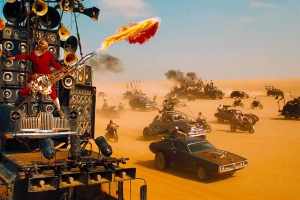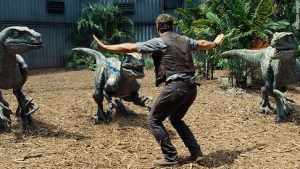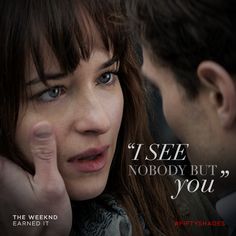The Big Score: Music in Film (2015)
You’re sitting in a theater. Your hands dig into the popcorn bag. Your mouth dries as the salt and butter strip it free of moisture. Your heart thumps in your chest as a dramatic action scene plays out in front of you on the screen. The characters that you’ve spent the last two hours getting to know are in danger of losing their lives as explosions blast through the theater speakers and you feel your emotions swell with the music that rises to a crescendo and peters out as the final blow of the battle is landed. The music stops or grows softer. A piano note here and there that signifies the end of the film. There is an emotional release and you feel your body calm down as the adrenaline rush cools.
You haven’t just watched a movie. You’ve experienced it. And it was due, in part, to the magnificence of the score. Sure, the director, writers and actors spent time crafting the narrative that you follow with your eyes, but your ears follow the musical cues. Good music is evocative, and in combination with a great film, will definitely impact your mood and the way you view the film. The goal isn’t necessarily to determine whether or not the music is good since interpreting music as either good or bad is entirely subjective. Instead, the goal is to describe how brilliant execution and placement of certain musical beats can make for an objectively awesome viewing session.
To start with three examples of wonderful execution, you just have to take a look at three films from this past year: Mad Max: Fury Road, Jurassic World and finally, Fifty Shades of Grey.
Fire, Blood and A Lot of Drums
First, we begin with Mad Max: Fury Road. The fourth entry into the Mad Max franchise, the film follows the Road Warrior, Max Rockatansky, as he is captured by a wasteland dwelling society, only to be intertwined in a chase for redemption with the objectively awesome Imperator Furiosa. The story of the film is relatively simple: it’s a two-hour action/chase scene. The characters aren’t necessarily fleshed out so much through dialogue, as they are through the actions that they take. It is a well-acted film and 70 year old film-making veteran George Miller does a masterful job at crafting every shot in the film. Another major part of Fury Road‘s success according to critics is its score.
“This is going to be a movie you want to turn up the volume. In conjunction with the glorious visuals, this score will answer your prayers. It has successfully created a feeling of fun and violence in a way I didn’t think was possible, not at the level it presents itself. The synergy of sound effects and music has buried itself deep inside my skull and I don’t want to ever take it out.” – Jørn Tillnes, Soundtrack Geek

Tom Holkenborg (also known as Junkie XL) crafted the score of Fury Road, and it isn’t all just percussion and violent guitar solos. There are moments where it’s so beautifully orchestrated that it captures a sense of beauty and wonder in the dry waste of Fury Road‘s world. There are musical sequences like “Blood Bag” and “Brothers In Arms” that make your blood rush through your veins as cars explode and “Witness me!” is bellowed to the heavens. Then, there are intimate pieces like “Many Mothers” that make you feel the pain, desperation and anguish of the characters. Even the flame-throwing guitar player manages to factor into the score, twiddling his fingers and blasting powerful notes. Every emotion that the film takes you through is governed by the visuals but also shepherded by a masterful score. This a shining example of musical execution gone right.
Life Finds A Way Again
There are some moments where a composer creates something so marvelous and iconic that you can’t imagine anyone attempting to follow their performance. John Williams is one such composer, leaving an indelible mark on every film that he score. The Academy Award winning composer arguably does some of his greatest work on Jurassic Park. Everyone knows the film’s theme. Everyone can hum the theme. It has transcended generations and captured the imaginations of youth in ’93 as well as those born afterwards.

So of course, when it was announced that another person would be scoring Jurassic World, the fourth entry in the Jurassic Park franchise, people were waiting in eager anticipation and skepticism. Not only does Michael Giacchino manage to capture the spirit of the original film with nostalgic remixes to the original’s soundtrack but he also adds his own flare to the mix and it feels, it breathes Jurassic Park. Horns blare, strings touch your inner ear and the piano notes tug at your heartstrings. Scores like “Welcome to Jurassic World” and “The Park Is Closed” are standout examples of nostalgic remixes to John Williams’ score while “As The Jurassic World Turns” and “Nine to Survival Job” capture the magnificence and wonder of John Hammond’s vision for a theme park filled with happy families as well as the overall spirit of Jurassic Park as a franchise.
Fifty Shades of Awesome Artists
Now, if there was any film that had a beautiful soundtrack of beautiful songs, it is Fifty Shades of Grey. This is the one part of the list that has only two “orchestral pieces”, instead relying on an abundance of original songs tailored to the film. “Earned It” by the enigmatic The Weekend is in itself a masterpiece that serves to amplify the tension between the two main characters. The opening track, “I Put A Spell On You” by Annie Lennox, is another song that just sets the tone for the relationship between Christian and Ana. And while every song isn’t original like Beyonce’s “Crazy In Love” and Frank Sinatra’s “Witchcraft”, they all fit within the tone of the series and help to establish and maintain the air of mystique that the film has, even if the film itself essentially stomps and sets fire to the work that the music puts into assisting it.
In the end, music has the power to impact the mind of those who listen to it, just as films have the power to impact the minds of those that watch them. In proper conjunction, music and film can blend together to create masterpieces that change the viewer and listener into one who experiences the film. It will make you feel the despair, adrenaline and bone-crushing beauty of Mad Max: Fury Road. It will make you feel like Christian and Ana aren’t just cardboard cutouts talking in the big screen adaptation of Fifty Shades of Grey but that their love is something phenomenal. It will make you relive the nostalgia, joy and terror of your childhood as you see John Hammond’s vision come true and subsequently be destroyed again in Jurassic World. Music is power. Music is life and as Friedrich Nietzsche said in Twilight of the Idols, “Without music, life would be a mistake.”
What do you think? Leave a comment.












I totally agree that music influences and enhances feelings in movies. I wonder what a study would show if you had some people watch a part of the movie without the music, another group with the music but without words, and a third group with both. Then they could be asked questions about how they felt during the scene and about the quality of the scene itself.
There are such studies conducted with deaf people. They are very boring, though.
As a musician myself and an avid moviegoer, I have always argued the importance of scoring in movies. Recently, a friend told me if she gets scared in a movie, she turns the sound off. It makes such a difference in how a movie is perceived when the experience is as moving aurally as it is visually.
For me, John Williams’ “Jurassic Park” score is the one that started it all…
What a day….What a LOVELY DAY.
I remember when I was watching Mad Max: Fury Road, that I would get excited to hear the drums during the movie. The score definitely brings up your adrenaline and makes you feel like a War Boy. Well done!
This is an amazing read, thank you for writing about this topic. I thoroughly enjoyed your introductory paragraph, you really engaged the reader with your story telling. I am a HUGE movie soundtrack fan (Danny Elfman is my favorite), so I appreciate your emphasis on the effect music has on the audience.
I wonder, though, if we could isolate any examples where the music works against the film. Every film’s score adds another dimension to the work as a whole, but it’s only the well-scored films that remain in our memory after the end credits roll and that truly give greater impact to the image. Is it possible that the dichotomy between picture and sound can be great enough that there isn’t an enhancements, but a detraction from the overall experience?
I think this dichotomy you speak of is certainly an issue, though it is subjective. I can think of an example of a film I think was over-scored: War Horse. While I really enjoy John Williams’ score for that film on its own and listen to it frequently while reading or walking, there are some parts of the film where the music is too grand for the imagery.
My absolute favorite piece of music at the moment is in Mad Max.
Great year for soundtracks.
The music by Giacchino is bland and generic. The only time my ears enjoy what they’re hearing (i.e. something I couldn’t produce myself, a talent beyond my own ability) is when the John Williams material begins.
Fury Road was a masterpiece, and the soundtrack album was absolutely epic. A true action movie.
Interesting point. Musical scores are a major element of the film-making process. A viewer might not always pay explicit attention to the musical soundtrack of a film but as this article points out, its influence can never be discounted.
Michael Giacchino music never ceases to amaze me.
Say that to Murillo (two comments before yours).
Miller has seriously set the bar on this one. Holy mother of flaming hell what a movie that was.
The soundtrack can also function as a continuation of the emotion experienced in the film. It can be a material piece of nostalgia that a person can *own* from the experience, listening to it long after the watching has been completed. Many students have confessed that they listen to the score from the Harry Potter series when they are studying, even in college. It makes sense; HP conjures the sense of adventure, but he and his friends spend a lot of their time finishing assignments too. The music can be a comfort–a companion too.
In high school I always hung out with the “band nerds”. In a rather loud argument one day, we were discussing the best movie scores. I cast my vote for the Lord of the Rings sound track, which became number one on our list. The second place slot belonged to Star Wars, mainly because of Vader’s theme being so iconic and exciting. The third was given to Jaws, again because of the antagonist’s theme being, “totally awesome”. This article is every “band nerds” dream. Well written and argued!
I always love Michael Giacchino music
Great article, and brilliant examples !
I absolutely agree with this; musical scores are an essential part of a the experience of watching a movie. Without the score in the background, a movie would loose so much of it’s importance, captivity and charm.
Take Lord of the Rings ! Can one imagine it without the score?
In addition, Micheal Giacchino is one of my personal favorites. It’s his work on Lost is what has me so attached to the show, and not as much the show itself.
Again, great article!
It’s incredible how the background drums in Mad Max can keep you edged on your seat throughtout the movie!
I love that you mentioned both orchestral and non-orchestral soundtracks! I am a huge orchestral soundtrack fan (enormous LOTR fan), but films like The Great Gatsby, or Django Unchained would be incomplete without their non-orchestral tracks. It’s a wonderful balance!
I think that a movie’s soundtrack can really influence how a viewer appreciates it. For example, Horner’s soundtrack for A Beautiful Mind made me fall in love with the film due to the important aid of the music to setting the scenes. While that it was orchestral, on the other hand, Boogie Nights would not be the same movie if it wasn’t for the music used to set the scene.
If you think back to moments, such as the homage in Creed to it’s predecessor Rocky, where an entire scene is dependent on the soundtrack, one sees just how significant the music is to a film.
There is a rather unique blending of the orchestral/non-orchestral soundtrack in Creed that I thoroughly enjoyed.
I really enjoyed the setting of the scene in the first paragraph of this article; effective use of sensory detail. I agree with much of what is said in this article. I feel music and sound effects play such a large role in immersing viewers into what they’re watching. The audio is also crucial in the whole construction of the movie, supporting and enhancing the visuals and elements of action. Audio is most definitely a core component in the resonance of a film as it connects viewers with the film long after they have watched it.